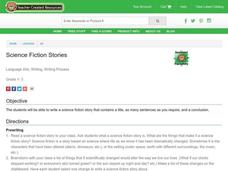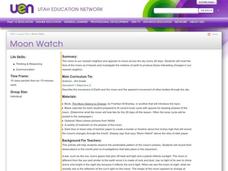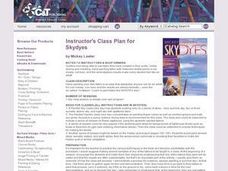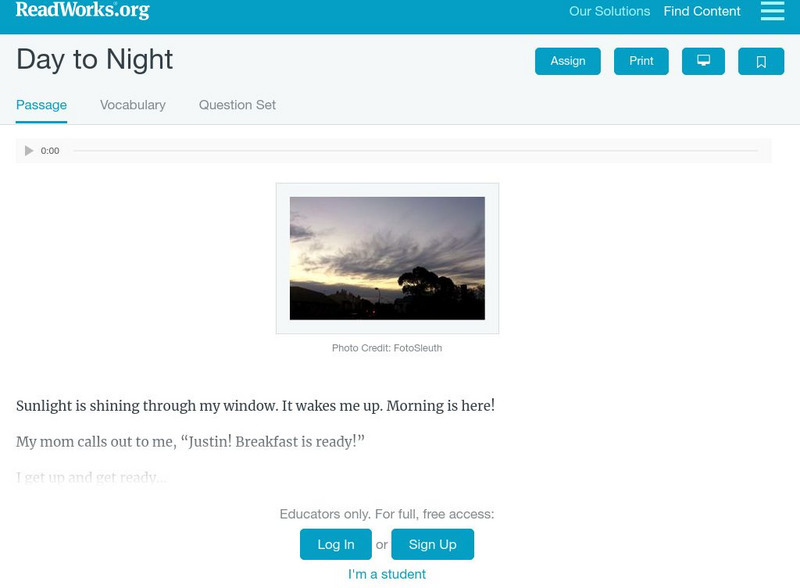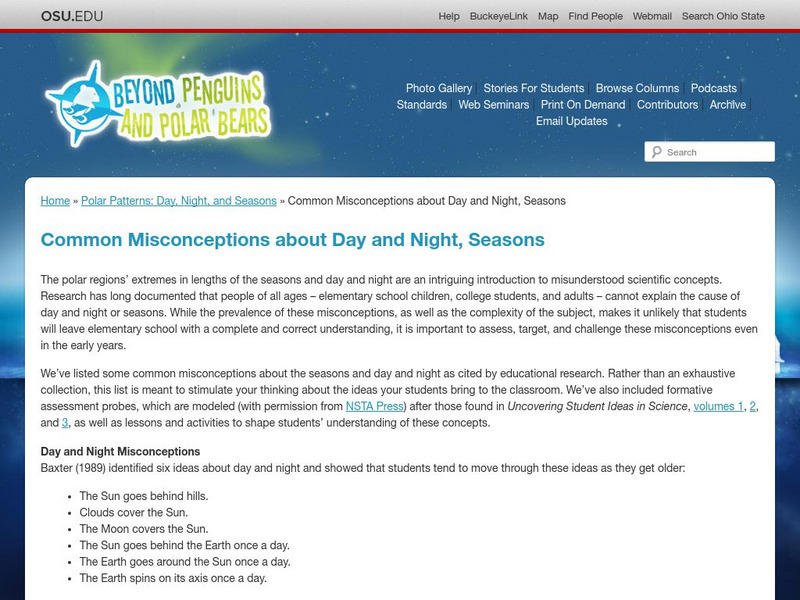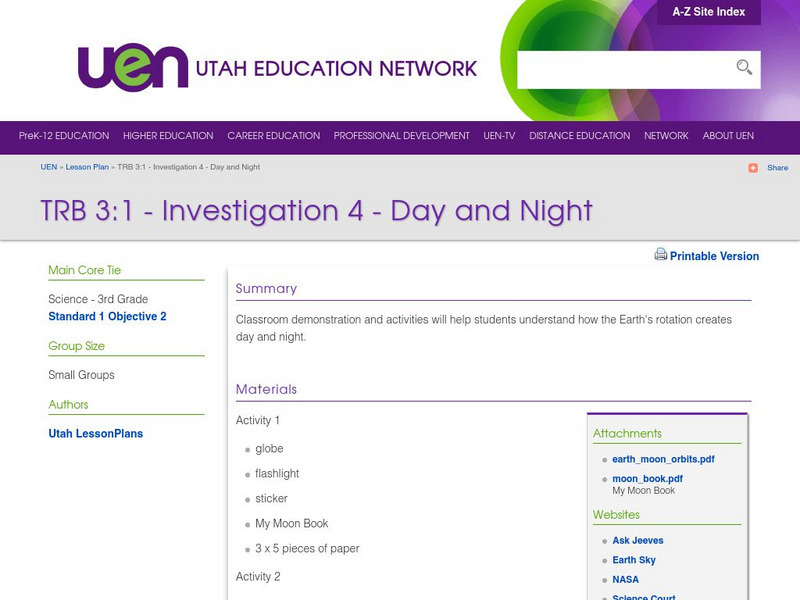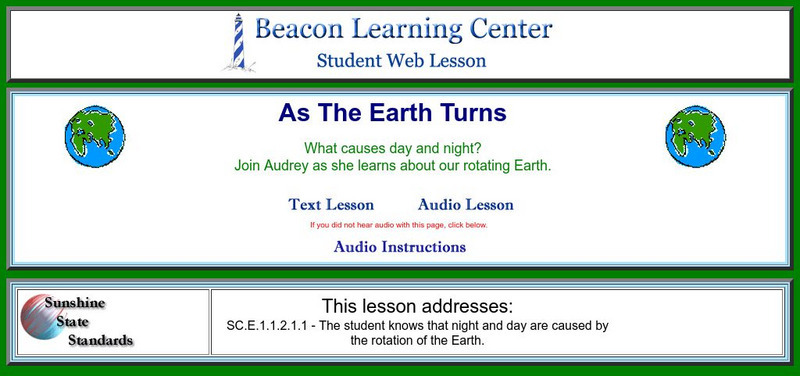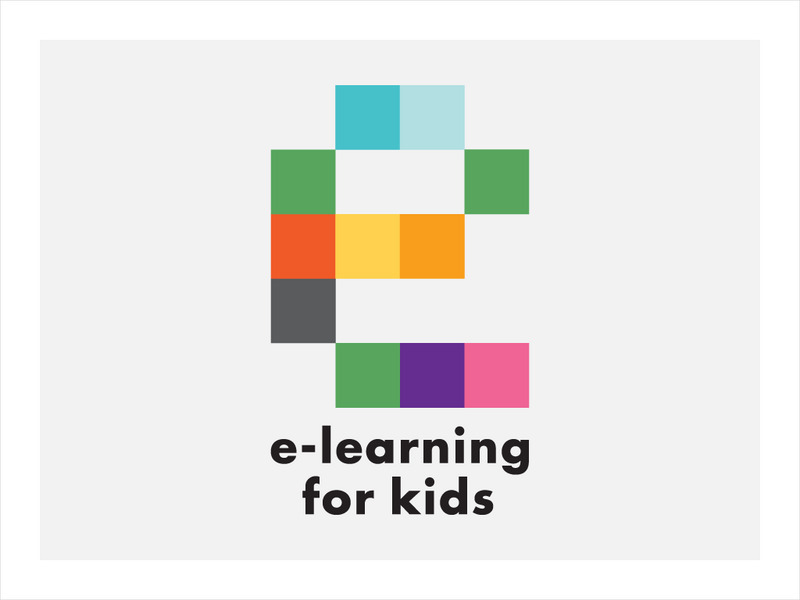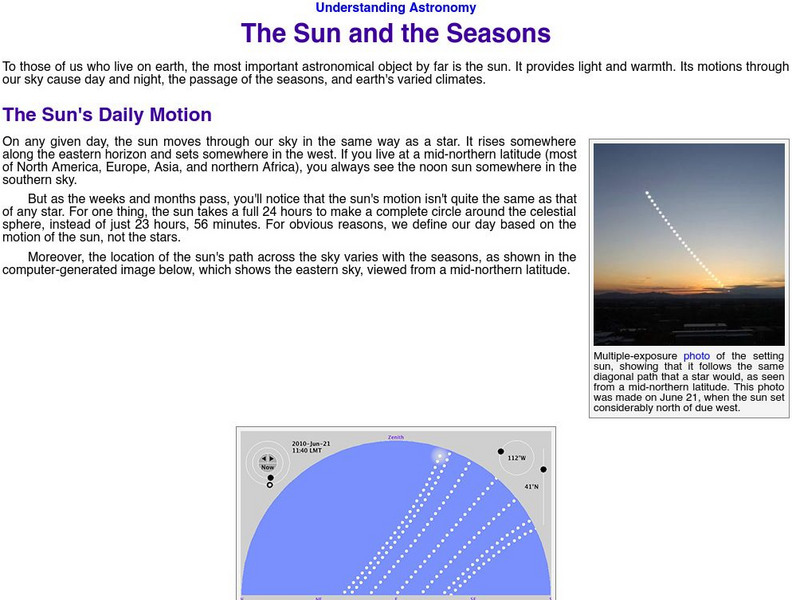Curated OER
Migration Migraine
Students partipate in a demonstration in which they role play animals migrating between breeding and wintering habitats and encountering hazards at each end of the journey.
Curated OER
Science Fiction Stories
Students review the story writing process and the elements such as prewriting, drafting, editing, revising, publishing, and assessment. Next students write a science fiction story that contains a title, the requested number of...
Curated OER
Intermediate Spelling- "Nighttime"
In this intermediate spelling instructional activity, 6th graders unscramble words associated with nighttime using the letters given and their definitions. They leave the first letter of each word in place.
Curated OER
Moon Watch
Third graders read books about the moon and discuss its perceived changes as it moves across the sky. They observe the moon over the course of a month and chart their observations. They discuss their observations and conduct further...
Curated OER
Great River Bend Adventure
Young scholars use their imagination. They discuss the 4 C's of teamwork: Concentration, Communications, Coomperation, and Consideration. Students discuss the safety guidelines of the project. They complete a rope maze. The group walks...
Curated OER
SKYDYES
Students use fabric they have created in their quilts. Unlike dyeing and marbling, hand-painting fabric with Setacolor textile paints is not messy, not toxic, and the serendipitous results make every student feel like an artist!
Curated OER
The Blitz: World War II
In this World War II worksheet, students read about Hitler's invasion of Britain. The worksheet includes a link to additional World War II activities.
Read Works
Read Works: Day to Night
[Free Registration/Login Required] A literary text about a typical day in the life of a boy named Justin. A question sheet is available to help students build skills in reading comprehension.
Other
Center for Science Education: Eye on the Sky: What Makes Day and Night?
This activity will allow you to model day and night cycles. A rotating student holding a map (provided) models the earth. A lamp is used to model the sun. Numerous worksheets (pdf) and additional website resources are also provided.
Ohio State University
Beyond Penguins and Polar Bears: Common Misconceptions About Day and Night
Misconceptions about the causes of seasons and day and night are common through all ages. Use the information on this site to help your students understand these concepts. Included are links to many resources and lesson plans for...
Utah Education Network
Uen: Trb 3:1: Investigation 4: Day and Night
A lesson for third graders in which they learn about the rotation of the Earth on its axis and how this movement creates day and night. They also examine the orbit of the moon about the Earth and the Earth's orbit around the sun.
Beacon Learning Center
Beacon Learning Center: As the Earth Turns
Join Audrey on her learning adventure as she discovers how the Earth's rotation causes day and night.
E-learning for Kids
E Learning for Kids: Science: Center of the Ocean: The Sun, the Earth, and the Moon
Nita lives on Coco Island in the Indian Ocean, and is learning more about the Sun, the Earth, and the Moon. Join her and learn about day and night.
American Association of Physics Teachers
Com Padre Digital Library: Open Source Physics: Astronomy: Sidereal Solar Day
A computer based simulation demonstrating the difference between a sidereal day and a solar day.
Science Education Resource Center at Carleton College
Serc: Mn Step: Rotation of the Earth
A KWL activity combined with a demonstration model. Students record their ideas and questions about why we have day and night. They then shine a flashlight (the Sun) on a rotating styrofoam ball (the Earth) and record their observations....
Other
Weber State University: The Sun and the Seasons
To those of us who live on earth, the most important astronomical object by far is the sun. This article explains how the motion of the sun through our sky cause day and night, the passage of the seasons, and earth's varied climates.
PBS
Pbs Learning Media: The Moon in the Sky
Students observe representational images and use as evidence to describe how the Moon is visible in the day and night sky. The digital slideshow is used to provide students with the opportunity to observe and describe how the Moon can be...
Alabama Learning Exchange
Alex: Our Restless Planet
This unit will use demonstrations and student examples to help students gain an understanding of rotation, revolution, and orbit. Through hands-on activities students will explore the concepts of day and night. Technology will be...
Alabama Learning Exchange
Alex: Unfortunate Fortunato
You are a local police detective, your task is to investigate the disappearance of Fortunato. Retrace his steps leading up to his disappearance. Remember to interview anyone that may have seen him that night. After gathering all of your...



